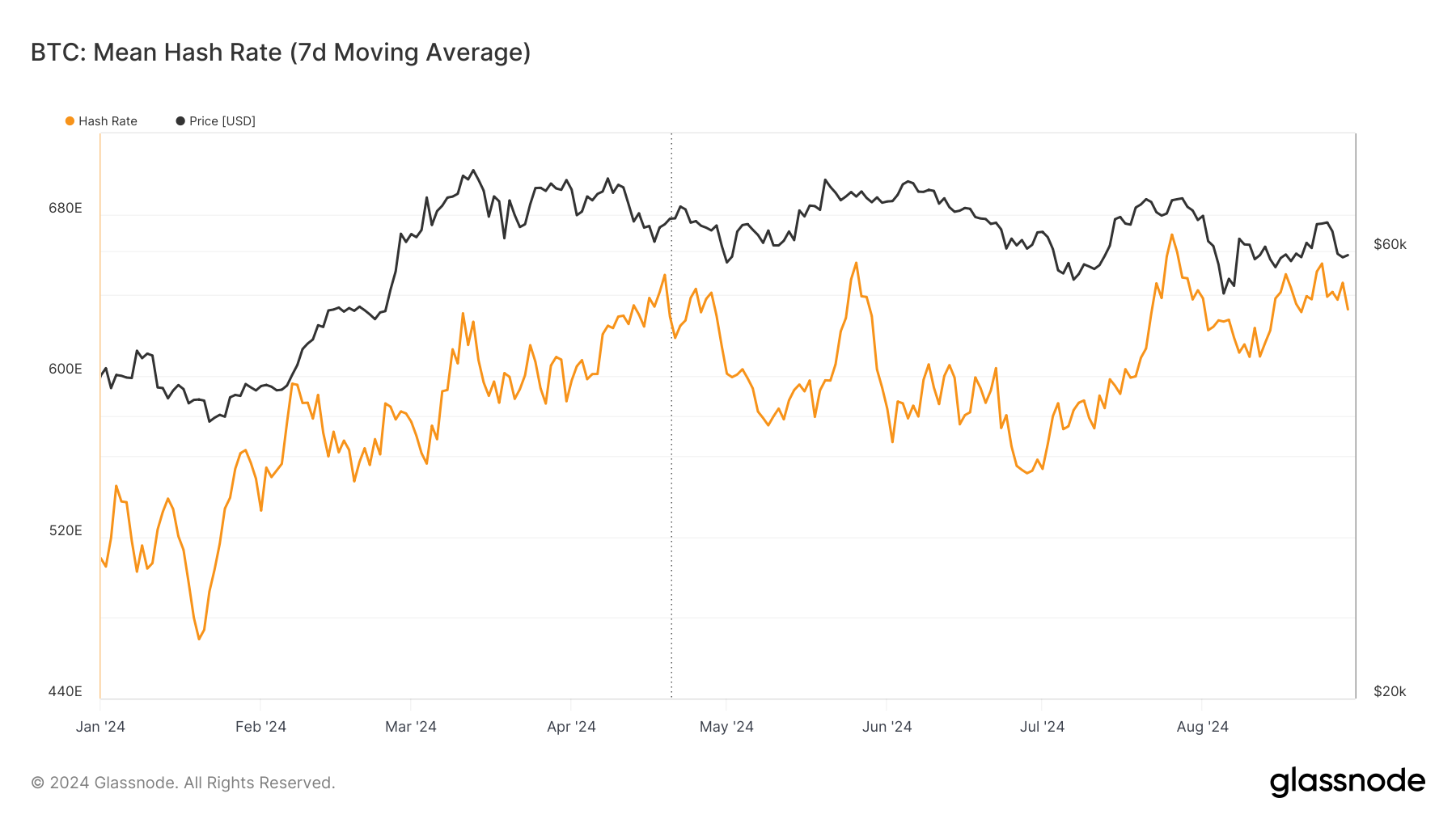Coinbase (NASDAQ: COIN) is delisting Binance USD (BUSD) after an internal review of the stablecoin apparently concluded it didn’t clear the digital asset exchange’s hurdles for listing.
On Monday, the Coinbase Assets official Twitter account announced that the exchange “will suspend trading for Binance USD (BUSD) on March 13, 2023, on or around 12 pm ET.” The action follows the exchange’s “recent reviews” to ensure the tokens listed on Coinbase “meet our listing standards.”
The suspension will apply to Coinbase.com, Coinbase Pro, Coinbase Exchange, and Coinbase Prime. The announcement assured customers that their “BUSD funds will remain accessible to you, and you will continue to have the ability to withdraw your funds at any time.”
The announcement follows the recent order by the New York Department of Financial Services (NYDFS) to the New York-based Paxos Trust to stop minting new BUSD as of February 21. The NYDFS also issued a consumer alert saying the Paxos order came “as a result of several unresolved issues related to Paxos’ oversight of its relationship with Binance.”
The latter firm issued its own form of BUSD known as Binance-Peg BUSD on its in-house Binance Smart Chain. Binance itself admitted that Binance-Peg BUSD wasn’t always backed by a sufficient quantity of reserve assets to maintain its 1:1 ratio with the U.S. dollar. The NYDFS said Paxos had “violated its obligation to conduct tailored, periodic risk assessments and due diligence refreshes of Binance and Paxos-issued BUSD customers to prevent bad actors from using the platform.”
Paxos was also sent a Wells notice by the U.S. Securities and Exchange Commission (SEC) indicating the SEC’s belief that BUSD was an unregistered security. SEC chairman Gary Gensler has become increasingly interested in taking action against ‘crypto’ entities that trade in tokens and staking programs without bothering to register them as securities.
On Monday, Binance’s controversial boss Changpeng ‘CZ’ Zhao tweeted a ‘4’ to an online query about whether the SEC’s action against BUSD was “more about Binance than stablecoins.” The ‘4’ refers to CZ’s new blanket dismissal of any reports of bad news involving his exchange, part of his new year’s resolution for dealing with self-described FUD (fear, uncertainty, and doubt) that others curiously describe as ‘facts.’
Unstable coins
Last week, New York Magazine quoted Gensler saying “everything other than bitcoin” qualified as a security. “You can find a website, you can find a group of entrepreneurs, they might set up their legal entities in a tax haven offshore, they might have a foundation, they might lawyer it up to try to arbitrage and make it hard jurisdictionally or so forth. They might drop their tokens overseas at first and contend or pretend that it’s going to take six months before they come back to the U.S. But at the core, these tokens are securities because there’s a group in the middle, and the public is anticipating profits based on that group.”
CoinGeek has long espoused similar views regarding Bitcoin being the sole exception to Gensler’s ‘crypto = security’ formula, with the proviso that when one says Bitcoin, they are referring to Bitcoin SV (BSV). The public perception that the BTC token is Bitcoin is erroneous, which should be obvious to anyone given the highly centralized role that the ever-shrinking ranks of Bitcoin Core developers play in dictating BTC’s future.
Getting back to Gensler, he expressed concerns re stablecoins in April 2022, saying they raised issues regarding “financial stability and monetary policy,” “illicit activity,” and “investor protection.” Last September, Gensler suggested that stablecoins may also qualify as securities.
Coinbase has been among the most active entities in pushing back on what they view as Gensler’s regulatory overreach. This is partly based on the existential threat Gensler’s approach poses to Coinbase’s current economic model, which relies heavily on the interest generated from holding custody of USDC stablecoins on behalf of customers.
Coinbase is also dealing with its own potential SEC action after the agency concluded that a number of tokens listed on the exchange qualified as unregistered securities. That position was announced last July after a former Coinbase staffer became the first crypto figure to be charged with insider trading based on advanced knowledge of what tokens Coinbase planned to list.
Earlier this month, this staffer pleaded guilty to two counts of conspiracy to commit wire fraud. The SEC has brought a separate civil action against the staffer and his brother, who pleaded guilty to similar wire fraud charges last year.
Survey says…
The recent spate of damning headlines spanning everything from crypto ineptitude to outright criminality hasn’t totally gutted the public’s passion for digital assets. At least, according to the results of a new Coinbase survey of some 2,000 U.S. residents.
The survey found that 76% of crypto investors “agree that cryptocurrency and blockchain are the future.” Of course, those investors are highly motivated to believe they’re not backing a loser. It also means nearly one-quarter of those who plowed money into crypto appear to believe that their investment was a wrong turn off the highway to prosperity.
The survey also found that 20% of Americans own crypto, a figure that “has remained unchanged since early 2022.” That may not actually be the flex that Coinbase thinks it is, as many of those crypto assets may now be worth seriously less than what investors paid for them at the time.
A recent Bank for International Settlements (BIS) report found that most digital asset investors—particularly small-scale ones—had lost money on their purchases. In other words, these underwater investors might not see much upside in cashing out until the value of their tokens (hopefully) inches back up to their break-even point.
Four in five Americans reportedly believe “the global financial system unfairly favors powerful interests,” while two-thirds believe “the financial system needs major changes or a complete overhaul.” Which may be interesting but doesn’t actually have anything specific to do with digital assets.
And remember that the BIS report found that, while the majority of crypto investors had lost money, for the most part, they were losing that money to crypto whales. BIS found that whales were unloading their tokens while the masses of greater fools were rushing in, tempted by rising token values. So digital currency appears to offer little safety from being preyed upon by powerful interests.
The survey claimed that digital asset enthusiasm was higher among people of color, although that is partly due to those communities having significantly less traditional stock holdings. Unfortunately, this disparity means that the ‘crypto’ crash may have disproportionately harmed people of color. As one black investor put it: “Retail investors, particularly in Black and Brown communities, they’ve been sold the sizzle, but there ain’t no steak there. And we’re the first group who loses out.”
As we at CoinGeek never tire of reminding the world, the main problem with crypto’ investment’ is that the tokens serve no purpose other than speculative casino chips. A few lucky individuals may win big, but the vast majority will emerge from this gambling den poorer than when they entered.
BSV’s low transaction fees and unmatched storage capacity make it the only protocol that has a legitimate shot at becoming the ‘peer-to-peer electronic cash’ described in the Bitcoin white paper. BSV has, from day one, remained true to a utilitarian worldview, so if you want to discuss a blockchain-based future of finance, you ignore BSV at your own peril.
Follow CoinGeek’s Crypto Crime Cartel series, which delves into the stream of groups—from BitMEX to Binance, Bitcoin.com, Blockstream, ShapeShift, Coinbase, Ripple,
Ethereum, FTX and Tether—who have co-opted the digital asset revolution and turned the industry into a minefield for naïve (and even experienced) players in the market.
New to Bitcoin? Check out CoinGeek’s Bitcoin for Beginners section, the ultimate resource guide to learn more about Bitcoin—as originally envisioned by Satoshi Nakamoto—and blockchain.




I enjoy the efforts you have put in this, thanks for all the great content.